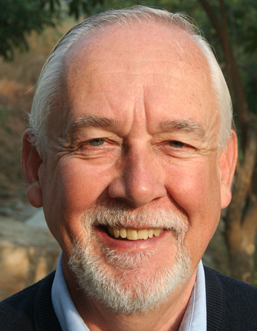|
 |
Prof James Bjorkman
Photo: Supplied
20 March 2013 |
Prof James Bjorkman, Professor Emeritus of Public Policy and Administration at the Institute of Social Studies at The Hague in the Netherlands, visited the University of the Free State (UFS) to explore the context and limits of health reforms in South Africa.
After clarifying terms and establishing the background of general public sector reforms over the past few decades, Prof Bjorkman focused on characteristics of the health sector, its basic issues, as well as constants and variable dimensions. He paid special attention to the complex interplay between access, quality and cost of health services.
Prof Bjorkman also shared experiences, based on his observations over the decades, during his lecture at the Faculty of Health Sciences.
Click here to read an extract from his book, “Health reforms in Central and Eastern Europe: Options, Obstacles, Limited outcomes,” on which his lecture was based.